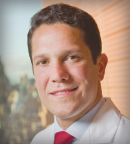Chemotherapy-induced hair loss affects 65% of patients with cancer,1 and the psychosocial impact on these patients can be profound; it may include anxiety, depression, a negative body image, lowered self-esteem, and a reduced sense of well-being.2 In some instances, the fear of hair loss from cytotoxic chemotherapies can be so severe that patients may opt for less effective treatments that do not have this side effect or refuse treatment altogether.2
For the 25% to 30% of cancer survivors with persistent alopecia from their anticancer therapies, defined as incomplete hair growth after 6 months following cytotoxic chemotherapy or from the initiation of endocrine therapy,3 the impact on their quality of life can be especially severe.
“Late alopecia is frequently underrecognized, given the constellation of additional findings in survivors,” said Mario E. Lacouture, MD, Director, Oncodermatology Program, Memorial Sloan Kettering Cancer Center, New York. “It is important for patients with early-stage disease receiving taxane-based chemotherapy or for childhood cancer survivors receiving high-dose chemotherapy and radiation to the scalp to be aware of this possibility, so they can engage in anticipatory coping and be better able to manage the condition.”

“Of the hundreds of cancer survivors we treat in our clinic, less than 1% discontinue low-dose oral minoxidil because of side effects.”— Mario E. Lacouture, MD
Tweet this quote
A recent retrospective study by Dr. Lacouture and his colleagues, presented during the 2022 ASCO Annual Meeting,3 may offer sufferers of late alopecia an effective, low-cost remedy to regrow their hair. The study investigated whether cancer survivors who experience both frontal and occipital late alopecia following cytotoxic or endocrine therapy can derive clinical benefit from low-dose, oral minoxidil, an older drug that has been historically used in higher doses to treat hypertension. An aminopyridine potassium channel opener that induces hair growth, the topical version of minoxidil is also now approved by the U.S. Food and Drug Administration (FDA) in the treatment of androgenetic alopecia in men and women.
The study included 216 women, the majority of whom (170) were breast cancer survivors. A total of 31 of the women had received chemotherapy alone, 65 had received endocrine monotherapy, and 120 of the survivors had received chemotherapy followed by endocrine therapy.
The study’s findings showed that after 3 months of treatment with 1.25 mg of oral minoxidil daily, the median percentage change in hair density was 20.4% in patients with frontal alopecia and 21.4% in those with occipital alopecia. Similar results were seen in follicular density: 22.5% in patients with frontal alopecia and 20.9% in those with occipital alopecia.3 None of the study participants discontinued the therapy because of adverse events.
The ASCO Post talked with Dr. Lacouture about the clinical benefit of oral minoxidil in patients with chemotherapy-induced late alopecia, testing oral minoxidil in patients with hematologic cancers, and improving survivors’ quality of life by preserving their hair during and after cancer treatment.
Repurposing an Older Drug
First, please explain how soon after completing cytotoxic chemotherapy a patient’s hair starts to
grow back.
Regrowth of hair usually starts within 2 to 3 months after completing chemotherapy. Thus, survivors should see scalp coverage with hair about one-and-a-half inches long around the fourth month.
Your study found more than a 20% clinical benefit in restoring hair growth and density in both the frontal and occipital scalp areas of cancer survivors with late alopecia. Please talk about the significance of that result.
What this finding means is that the scalp would be covered with about 20% more hair in those receiving low-dose, oral minoxidil, which is significant.
Are the study participants still receiving the medication?
Yes. Patients still receiving aromatase inhibitors have stayed on oral minoxidil. Other study participants who had received cytotoxic chemotherapies have chosen to stay on the drug indefinitely.
The advantage of oral minoxidil is that it is a medication approved by the FDA for at least 4 decades in high doses (40–80 mg daily) in the treatment of high blood pressure. Patients taking the medication for hypertension found they started to grow hair, and that’s how the topical version (better known as Rogaine) came about.
Guest Editor

Jamie H. Von Roenn, MD, FASCO
Dr. Von Roenn is ASCO’s Vice President of Education, Science, and Professional Development. Palliative Care in Oncology addresses the evolving needs of cancer survivors at various stages of their illness and care.
Oral minoxidil has the same active ingredients as the topical version, but what we are finding is that people do not like applying something to their scalp every night. The topical version can cause a dry, itchy scalp, so many people stop using it over time. What people without cancer have found is that low-dose minoxidil is not only more effective than the topical version, it also has a low incidence of side effects. (Editor’s Note: Although low-dose, oral minoxidil is not approved by the FDA for the purpose of hair growth, many dermatologists are prescribing it off-label to their patients with hair loss.4)
Providing a Safe Drug to Manage Treatment-Induced Hair Loss
What are some of the side effects of the oral medication?
In our study, minoxidil was well tolerated by patients, and no participants discontinued treatment because of adverse effects. We did find that some women developed facial hirsutism, but the hairs were very light, grew slowly, and could easily be treated. Of the hundreds of cancer survivors we treat in our clinic, less than 1% discontinue low-dose, oral minoxidil because of side effects.
Is topical minoxidil effective for cancer survivors with later alopecia?
It is effective, but the challenge is patient adherence. It is difficult for young adults or children with hair loss to apply something to their head every night. In addition, the topical version can cause scalp irritation and make the hair feel dry, so many patients discontinue its use.
Using Supplementary Procedures to Regrow Hair
Do the women in your study experience greater hair density the longer they take oral minoxidil?
From my experience of treating more than 500 men and women each year with this drug, patients reach a plateau after about a 1.5 to 2 years of use. After that, there may be some patients who need supplemental medications or procedures to regrow their hair, such as hair transplantation.
We are taking this approach now to patients with late sequelae from treatment, especially those with later-stage alopecia. If patients do not have a good enough response to the medication, we work with our plastic surgery colleagues to perform hair transplantation to give patients the most benefit of oral minoxidil.
Testing the Effectiveness of Scalp Cooling in Patients Receiving Taxanes
Would the combination of scalp cooling using a cold cap and low-dose, oral minoxidil be more effective in helping patients retain their hair during chemotherapy than oral minoxidil alone?
We are not doing studies combining minoxidil with scalp cooling. Scalp cooling is used when patients are receiving chemotherapy, but it doesn’t seem to be very effective in patients receiving doxorubicin and cyclophosphamide. However, the benefit of scalp cooling for patients receiving taxane drugs is that even though it may not prevent initial hair loss, a Spanish study found that it did prevent late-stage alopecia.5
We are currently investigating the use of scalp-cooling devices at lower temperatures to see whether they are more effective for patients receiving doxorubicin and cyclophosphamide.
Expanding Research
In your study of low-dose minoxidil for the treatment of late alopecia, all of the participants were female survivors of solid tumors. Are you testing the medication in survivors of hematologic cancers and in men with any type of cancer?
We are investigating low-dose, oral minoxidil in patients with hematologic malignancies receiving tyrosine kinase inhibitors or chemotherapies that cause alopecia. However, these studies are preliminary, and we do not have any data yet regarding its effectiveness.
We are also conducting studies in young male cancer survivors. Unfortunately, we have not had many referrals for older men with late alopecia. It may be because cancers that affect older men usually require continuous chemotherapy, especially if they have advanced cancers. We do not think this treatment is effective for patients undergoing cytotoxic chemotherapy.
Preserving Survivors’ Quality of Life
Nearly 60% of patients with cancer say hair loss is the most traumatic component of receiving chemotherapy.6 Please talk about how preventing hair loss during cancer treatment may help preserve survivors’ quality of life.
This is a very important point. Giving cancer survivors a sense of control over their hair loss by offering them scalp cooling, for example, is invaluable. We know that when patients are offered cold caps during chemotherapy and can retain their hair, even if their hair is not completely retained, their quality of life is improved, which is very important as they transition to survivorship status.
Offering Cancer Survivors Hope
What are the next steps with the study of low-dose, oral minoxidil in patients with treatment-induced alopecia?
We are about to open a clinical trial with oral minoxidil for children with chemotherapy-related hair loss. We are testing dosages based on a child’s weight. In the United States, the lowest FDA-approved dose is 2.5 mg, which we reduced to 1.25 mg for our adult study. We know that dosage is too high for children, so we have developed lower-dose compounds for children at varying weights, and we will see how effective the treatment is for children with later-stage alopecia.
Research addressing late dermatologic effects from cancer and its treatment is very new. However, there are now many dermatologic oncology colleagues focused on cancer survivorship, which is offering patients with this late sequela hope. It is also a testament to the advancements in cancer treatment and improved cure rates that patients are now living long enough to be concerned about their hair.
DISCLOSURE: Dr. Lacouture has served as a consultant to Johnson & Johnson, Novocure, QED, Bicara, Janssen, Novartis, F. Hoffmann–La Roche Ltd, EMD Serono, AstraZeneca, Innovaderm, Deciphera Pharmaceuticals, DFB Pharmaceuticals, Azitra, Kintara, RBC/La Roche–Posay, Trifecta, Varsona, Genentech, Loxo, Seattle Genetics, Lutris, OnQuality, Roche, Oncoderm, the National Community Oncology Dispensing Association, and Apricity. He also has received research funding from Lutris, Paxman, Novocure, Johnson & Johnson, US Biotest, OQL, Novartis, and AstraZeneca, as well as grants from the National Institutes of Health’s National Institute of Arthritis and Musculoskeletal and Skin Diseases and the National Cancer Institute.
REFERENCES
1. Trüeb RM: Chemotherapy-induced hair loss. Skin Therapy Lett 15:5-7, 2010.
2. Hesketh PJ, Batchelor D, Golant M, et al: Chemotherapy-induced alopecia: Psychosocial impact and therapeutic approaches. Support Care Cancer 12:543-549, 2004.
3. Mei-Shiuan Kuo A, Reingold RE, Ketosugbo K, et al: Oral minoxidil for the treatment of late alopecia in cancer survivors. 2022 ASCO Annual Meeting. Abstract 12022. Presented June 4, 2022.
4. Kolata G: An Old Medicine Grows New Hair for Pennies a Day, Doctors Say. The New York Times, August 18, 2022. Available at www.nytimes.com/2022/08/18/health/minoxidil-hair-loss-pills.html. Accessed November 17, 2022.
5. Martín M, de la Torre-Montero JC, López-Tarruella S, et al: Persistent major alopecia following adjuvant docetaxel for breast cancer: Incidence, characteristics, and prevention with scalp cooling. Breast Cancer Res Treat 171:627-634, 2018.
6. Saraswat N, Chopra A, Sood A, et al: A descriptive study to analyze chemotherapy-induced hair loss and its psychosocial impact in adults: Our experience from a tertiary care hospital. Indian Dermatol Online J 10:426-430, 2019.

